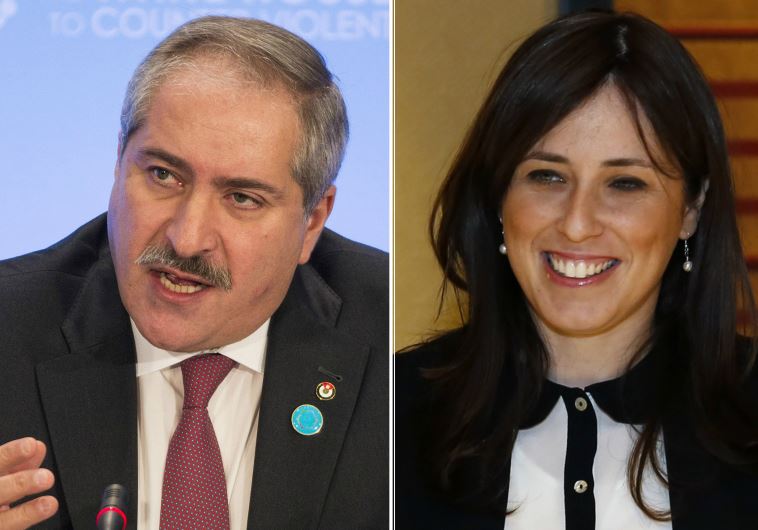Report: Hotovely, Jordanian FM engage in verbal spat at UN over Temple Mount
According to Israel Radio, the incident was triggered when Judeh took to the podium to speak at a donors conference hosted by the UN.
 Jordanian Foreign Minister Nasser Judeh (L) and Israeli Deputy Foreign Minister Tzipi Hotovely(photo credit: REUTERS,AFP PHOTO)Updated:
Jordanian Foreign Minister Nasser Judeh (L) and Israeli Deputy Foreign Minister Tzipi Hotovely(photo credit: REUTERS,AFP PHOTO)Updated: